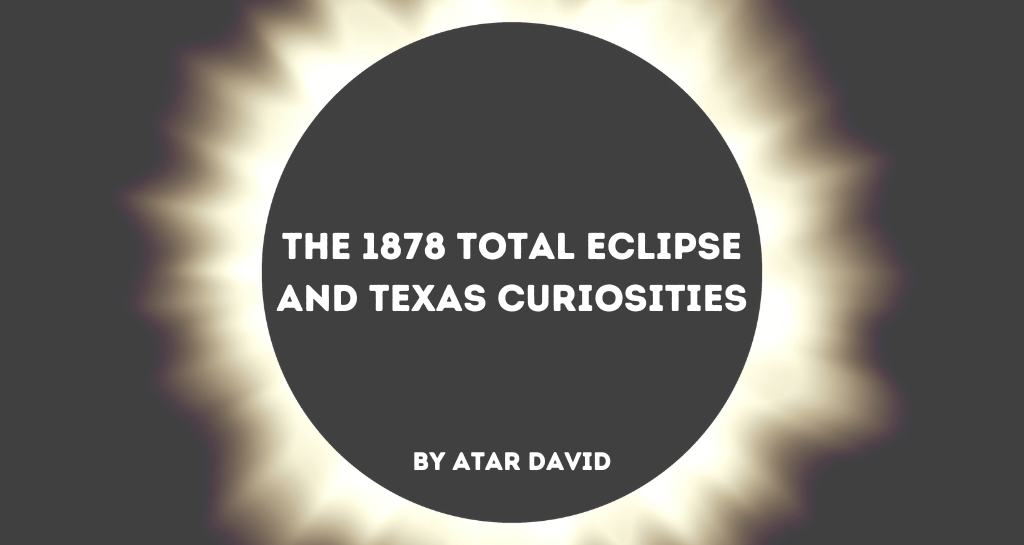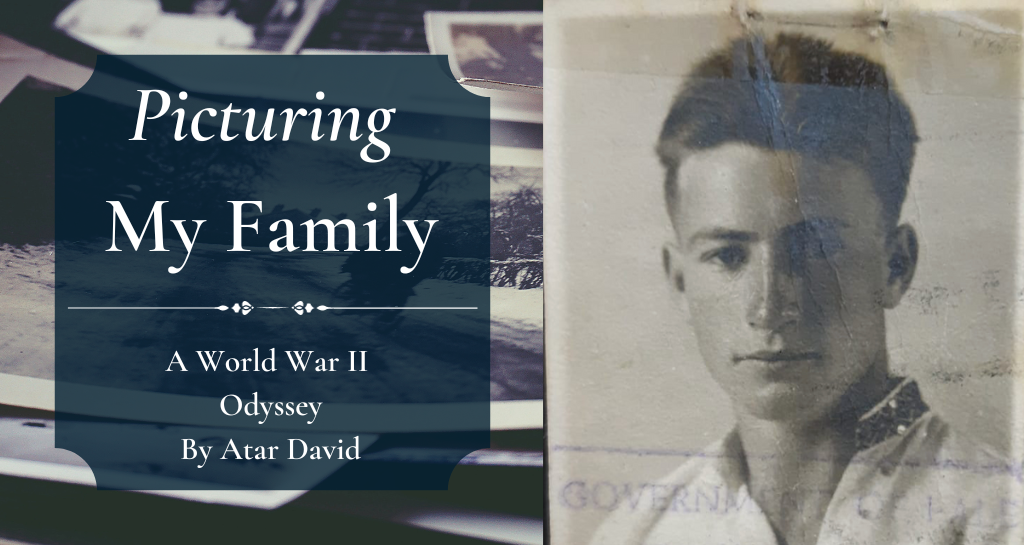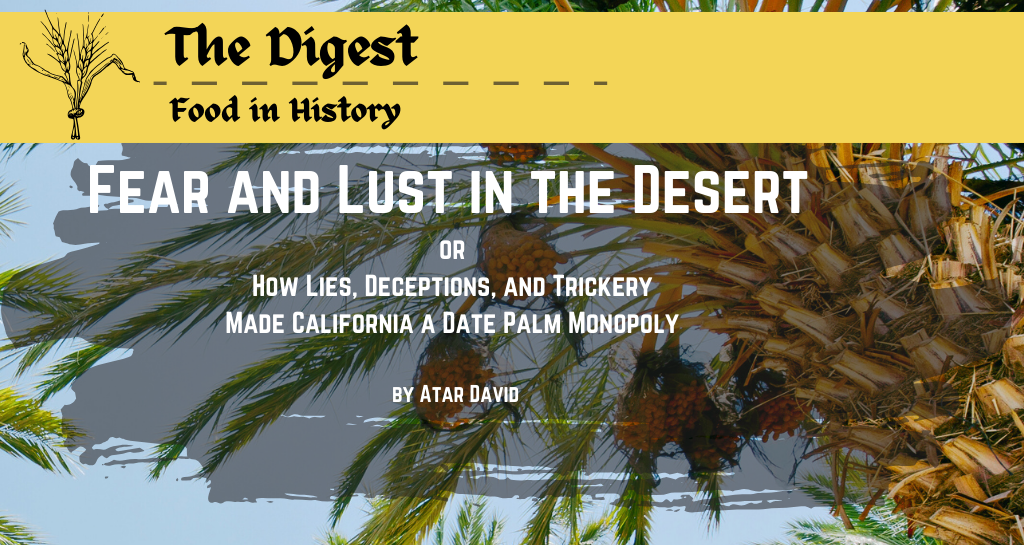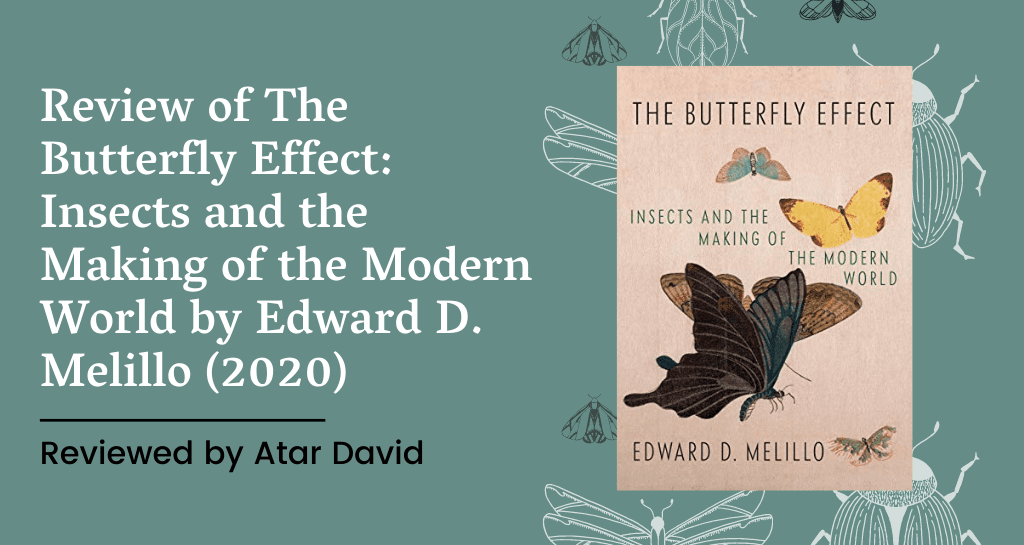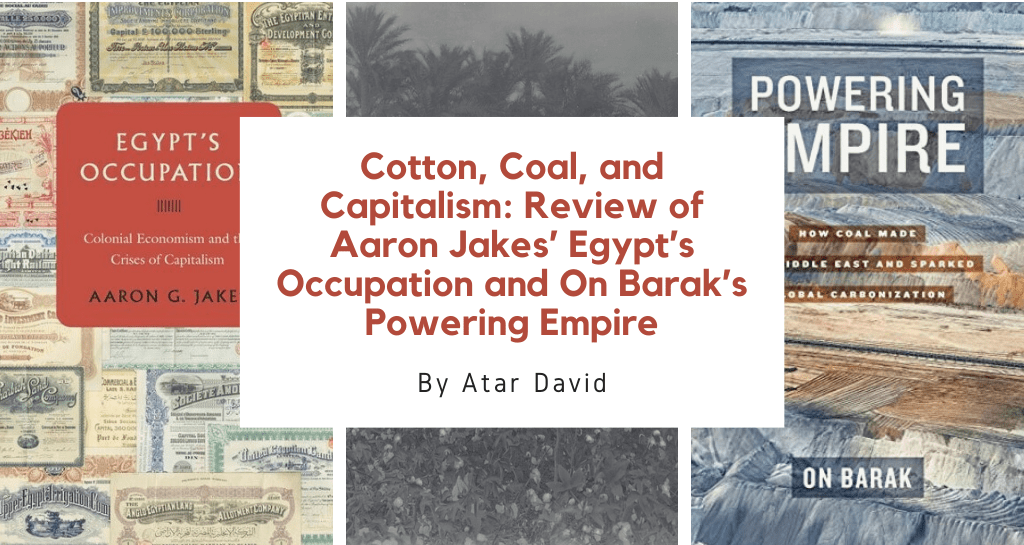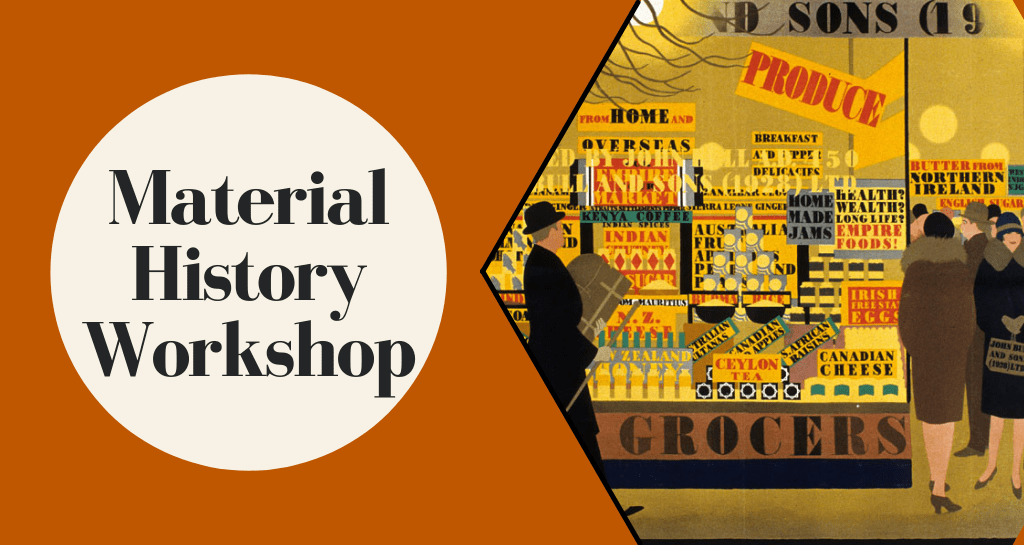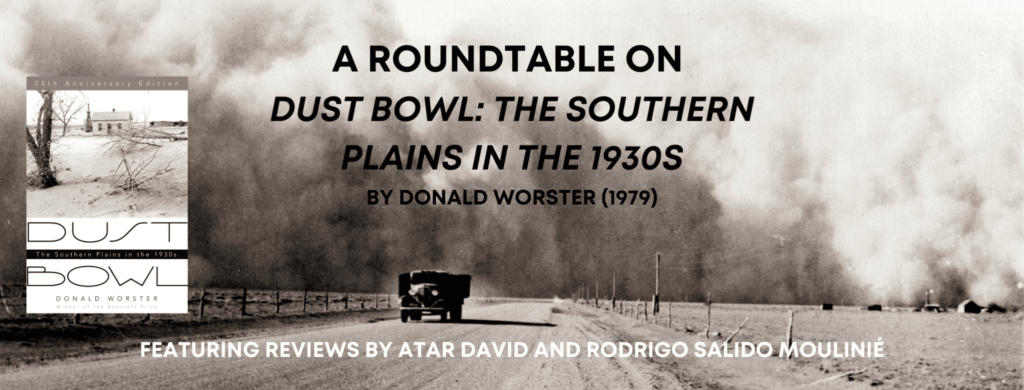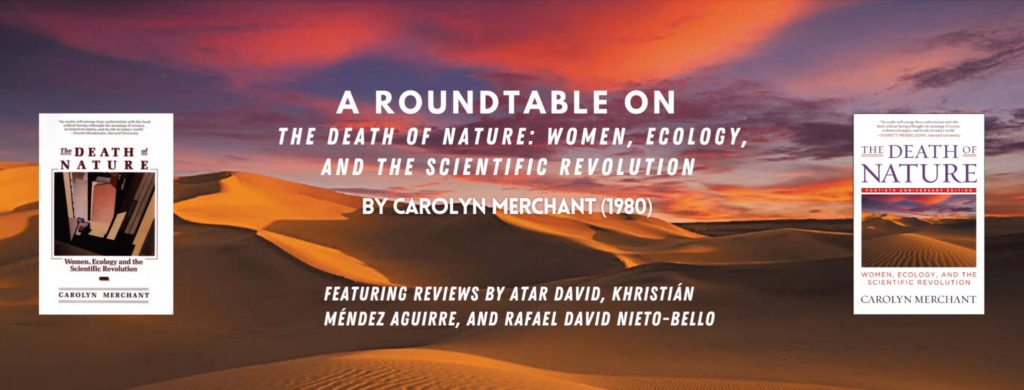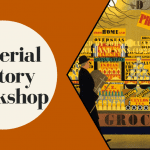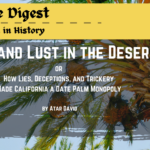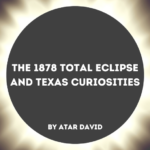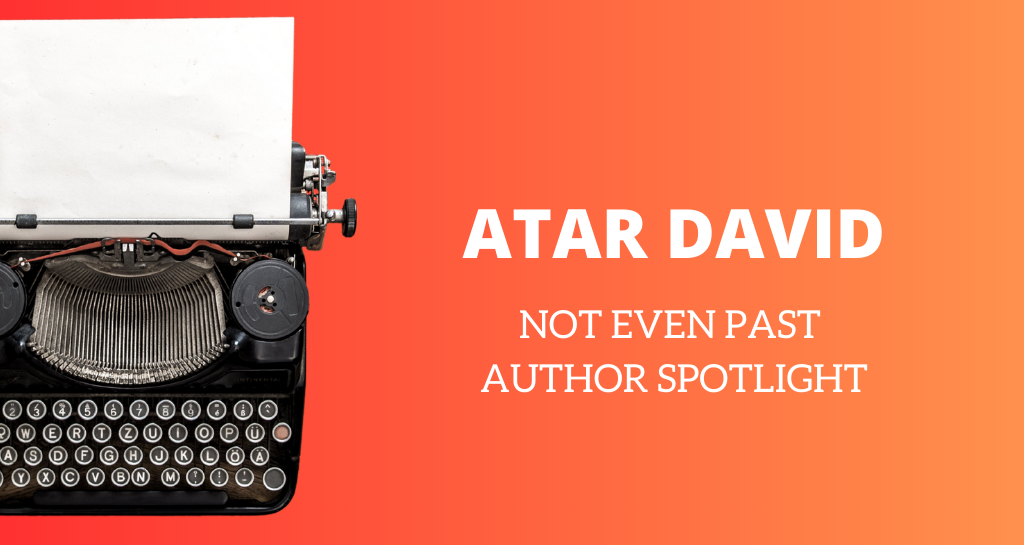
The success of Not Even Past is made possible by a hugely talented group of faculty and graduate student writers. Not Even Past Author Spotlights are designed to celebrate our most prolific authors by bringing together all of their published content across the site together on a single page. The focus is especially on work published by UT graduate students. In this article, we highlight the many contributions made to the magazine by Atar David, our outgoing Associate Editor and Communications Director for academic year 2023-2024. Atar David Author Spotlight underscores the tremendous value of his indefatigable work on the magazine.
Atar David is a Ph.D. candidate in the History department at UT Austin, interested in the social, economic, and environmental history of the modern middle east, with special attention to agricultural policies, commodities, knowledge production, and food provision policies. His dissertation research focuses on the circulation of agricultural commodities and agronomic knowledge between the Middle East and the American Southwest from the late nineteenth to the mid-twentieth century. Together with Raymond Hyser, Atar founded the “Material History Workshop” – a bi-monthly graduate workshop centered around material culture.
The 1878 Total Eclipse and Texas Curiosities
This article explores the 1878 total solar eclipse and its significant impact on Texas. Atar David delves into the historical context of the event, highlighting how it captivated both scientists and the public. The article also discusses the curiosity and excitement it generated, along with the scientific advancements it spurred in the region.
Picturing My Family: A World War II Odyssey
In this personal and poignant piece, Atar David reflects on his family’s experiences during World War II through the lens of photographs and stories passed down through generations. The article weaves together historical events with personal narratives, providing a unique perspective on the war’s impact on individual lives and families.
Fear and Lust in the Desert: Or How Lies, Deception, and Trickery Made California a Date Palm Monopoly
This article by Atar David uncovers the intriguing history behind California’s date palm industry, focusing on the deception and manipulation that allowed the state to establish a monopoly. David explores how the desert landscape and the allure of exotic fruits led to a complex web of lies and trickery, ultimately shaping California’s agricultural identity.
Review of The Butterfly Effect: Insects and the Making of the Modern World (2020)
Atar David reviews Edward D. Melillo’s book The Butterfly Effect, which examines the profound impact insects have had on shaping human history and the modern world. David highlights key themes from the book, including the role of insects in global trade, agriculture, and even cultural symbolism, offering readers a detailed analysis of this unique intersection between entomology and history.
Cotton, Coal, and Capitalism: Review of Aaron Jakes’ Egypt’s Occupation and On Barak’s Powering Empire
In this dual book review, Atar David discusses Aaron Jakes’ Egypt’s Occupation and On Barak’s Powering Empire, both of which explore the economic and environmental history of Egypt under British rule. Atar David examines how these works contribute to our understanding of the relationship between imperialism, capitalism, and environmental change in the Middle East.
UT’s Material History Workshop
This piece offers another take on the University of Texas’s Material History Workshop, focusing on different aspects of the event. Atar David and Raymond Hyser reflect on the interdisciplinary nature of the workshop and how it brings together historians, archaeologists, and scholars from various fields to study the material remnants of the past and their implications for contemporary historical narratives.
IHS Climate in Context: Dust Bowl: The Southern Plains in the 1930s by Donald Worster (1979)
Atar David revisits Donald Worster’s seminal work, Dust Bowl, which examines the environmental and social catastrophe that struck the Southern Plains in the 1930s. The author discusses the book’s relevance to current climate issues and highlights how Worster’s analysis of human-environment interaction offers valuable lessons for understanding and addressing modern environmental challenges.
Roundtable: The Death of Nature by Carolyn Merchant (1980)
In this roundtable discussion, Atar David, Khristián Méndez Aguirre and Rafael David Nieto-Bello engage with Carolyn Merchant’s influential book The Death of Nature, which explores the historical roots of environmental degradation through the lens of gender and science. David, Méndez Aguirre, and Nieto-Bello discuss the book’s impact on environmental history and feminist theory, as well as its continued relevance in contemporary debates about sustainability and ecological justice.
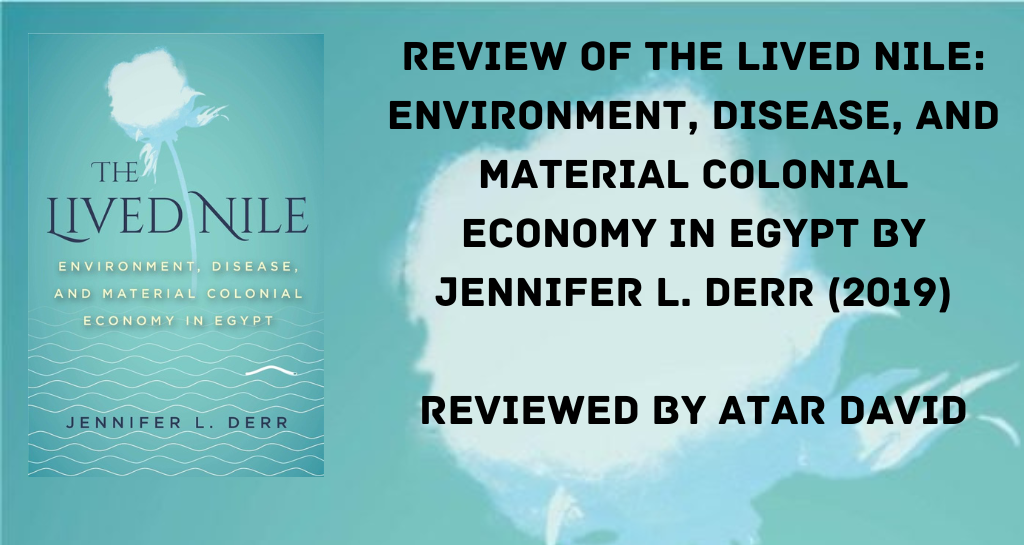
The Lived Nile: Environment, Disease, and Material Colonial Economy in Egypt by Jennifer L. Derr (2019)
Atar David reviews Jennifer L. Derr’s The Lived Nile, a book that investigates the complex relationship between the Nile River, disease, and colonial economic policies in Egypt. David examines how Derr’s work sheds light on the environmental and health challenges faced by Egyptians during the colonial period and how these issues were intertwined with broader economic and political forces.
The views and opinions expressed in this article or video are those of the individual author(s) or presenter(s) and do not necessarily reflect the policy or views of the editors at Not Even Past, the UT Department of History, the University of Texas at Austin, or the UT System Board of Regents. Not Even Past is an online public history magazine rather than a peer-reviewed academic journal. While we make efforts to ensure that factual information in articles was obtained from reliable sources, Not Even Past is not responsible for any errors or omissions.
